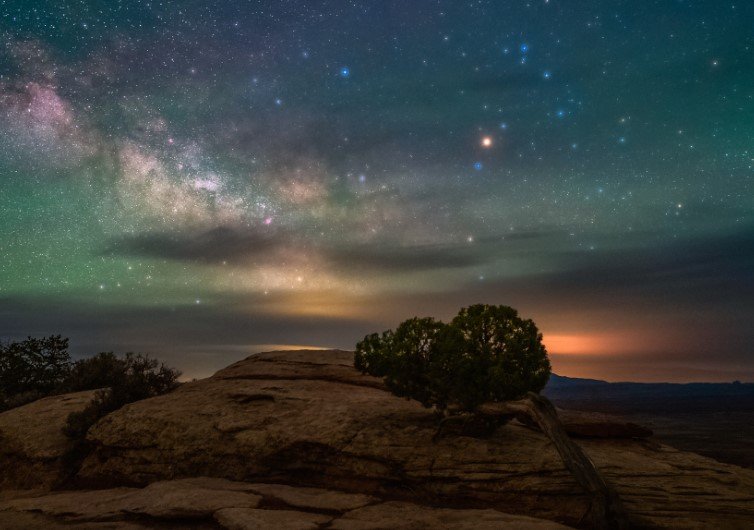Utah, renowned for its breathtaking landscapes, has embarked on a celestial celebration, officially declaring April as Dark Sky Month. This initiative underscores the state’s commitment to preserving its nocturnal environment and promoting astrotourism.
The Celestial Celebration
Utah’s Dark Sky Month is not just a time for stargazing; it’s a movement towards environmental stewardship and economic development. The state’s numerous Dark Sky Parks offer a sanctuary for the stars, free from the pervasive glow of artificial light. These parks are not only havens for astronomers but also for nocturnal wildlife, whose natural behaviors are often disrupted by urban lighting.

The declaration is also a strategic move to bolster astrotourism—a growing niche in the travel industry. With over 25 certified Dark Sky places, Utah is poised to become a global destination for those seeking the serenity of starlit skies.
Astrotourism: A Bright Future
Astrotourism has the potential to inject billions into Utah’s economy, with projections reaching over $5.8 billion in tourism spending. This form of tourism not only celebrates the beauty of the night sky but also encourages visitors to extend their stays, thus spreading economic benefits across the state.
The focus on dark skies goes beyond mere observation; it’s about education and preservation. Programs and tours are designed to enlighten visitors about the importance of dark skies and how they can contribute to their conservation.
Preserving the Night
As Utah embraces Dark Sky Month, the message is clear: the night sky is a resource worth protecting. Efforts to minimize light pollution are gaining momentum, with communities and parks working together to ensure that the stars remain visible for generations to come.
The celebration of Dark Sky Month is a testament to Utah’s dedication to safeguarding its natural nightscapes. It’s a call to action for residents and visitors alike to appreciate and preserve the celestial wonders above.

Comments